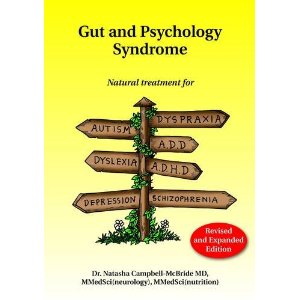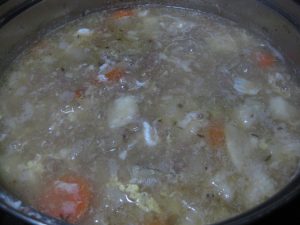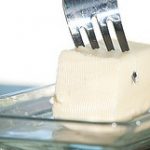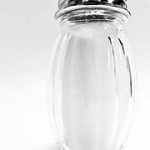This past year was a really important one for me. It was the start of something I’ve now devoted myself to for the rest of my life — a real, traditional foods lifestyle. It was the year I started this blog, which has taught me far more than the food science program I thought I needed to enter into at a university ever could, and given me a new direction in my working life. It was the culmination of a lifelong affinity for all things natural and “hippie” — I mean, I even moved into a solar-powered off grid cottage and basically went camping in my own home for several months without so much as running hot water or a kitchen.
But more importantly, 2011 was the time of a monumental turning point in the way I view health, and therefore, life. I thought I’d share with you guys some of the most significant lessons I’ve learned in the past year as I take some time to reflect on them.
In 2011, I learned…
How to love food.
I realize this may sound surprising since I am, well, a food blogger and all… but… I used to not like food.
*GASP!*
I know.
For most of my life, I really couldn’t care less about food. My mother always jokes about how I used to “fill up on ice cubes” as a child. I don’t think I ever once asked “What’s for dinner?” or “Can I have a snack?” throughout my entire formative years. The trend continued through adulthood. I would recognize hunger only briefly, think about what I could eat and conclude that nothing sounded good to me, and then forget about it and go back to whatever I was doing. I saw mealtimes as a burden — a chore — not something I could take pleasure in.
But in 2010, food piqued my interest a little bit. My mother had started seeing a holistic, traditional-foods-minded nutritionist, and her health struggles started mysteriously vanishing. She did weird things like eat vegetables for breakfast (cooked in butter or coconut oil, along with bacon and eggs), instead of cereal. She stopped drinking skim and started buying whole, raw milk. She started feeling better and healthier than she had in years.
My mom bought me Nourishing Traditions last year for Christmas. I started reading it, and I haven’t been the same since. I no longer believe that the government knows what’s best when it comes to nutrition. Or doctors. I realized that we’ve basically got food all wrong — it’s not supposed to come in boxes and shrink-wrapped plastic. It’s not supposed to be scorched to oblivion, or sterilized, or de-fatted. I learned that in order to take control of my health, I needed to take control of my food.
So I started cooking. And eating. And only buying real, whole foods. And a magical thing happened — I began to love food.
And I realized that it wasn’t that I truly didn’t like food before — I just didn’t like its phony impostors in boxes and plastic. Real food, is good food. Lesson learned.
How to not be afraid of cooking.
In my pre-food-love days, I used to dread cooking. I was terrified of raw chicken carcasses. Scared to slice off thumbs when chopping veggies. Trembled at the thought of attempting a recipe with more than five or so ingredients — I was always sure I’d screw it up, and ruin the already unappetizing food I bought.
So I usually stuck with things from the freezer or canned aisle that required no thought whatsoever. Dump it out into a skillet. Toss it in the oven. Pour it over some noodles.
But when I started doing this real food thing, I knew those days were over. I braved making things in my kitchen I thought could only possibly come from a grocery store — like yogurt. I started becoming so disgusted with the food industry that I had no choice but to cook each of my meals from scratch. And I quickly began to realize that this sort of thing really isn’t so scary.
Even when I’ve messed up a dish, it’s almost never so bad that it’s not somewhat salvageable. If it doesn’t taste all that amazing, I still get so much satisfaction out of making it myself and knowing that what I’m putting into it is good for me, that it really doesn’t matter all that much to me if it turns out not very tasty.
One time, when we had almost nothing in the kitchen to make a legitimate meal, I decided I’d whip up a homemade soup — sans recipe. Oh yes. I heated up some of my homemade stock, and started chucking whatever I could find in the fridge into the pot — random vegetable scraps, spices, eggs, ground beef — anything. I couldn’t stop laughing as I threw this stuff in there. I just loved the fact that it didn’t matter to me one bit that I was going to make this soup almost certainly taste super weird and probably not very good. It was nourishing, dang it, and I was going to eat it up!
Weird and not-good it was, and eat it, I did. And thankfully, Pre-Husband is basically a human garbage disposal and will consume whatever I put in front of him, with a smile on his face, and did so with the mystery soup. God bless that man. I think he’s rubbed off on me, because I’m starting to eat just about anything in front of me as well. Especially when I make it myself.
Be your own teacher.
Especially when it comes to making food choices for your health.
I learned that you don’t listen to the “Diet Dictocrats” — the government, the medical industry, the people profiting off of your buying and eating what they’re telling you to buy and eat. Don’t believe everything you read on the internet, or see on TV, or hear from your doctor. Some of these people simply don’t know any better, and some of them may try to purposefully sway you in a way that benefits them, not you.
Figure out what’s worked for a long time for a lot of people — instead of buying into what the new thing is that only some people are telling you to do. Think about what makes sense. Listen to your body. Pay attention to what those older and wiser than you do.
This is the way I see things now. I’m looking at the way our modern society’s health has taken an absolute nosedive, and then at the health of those who weren’t influenced by modern foods. I’m reading the research that’s been done on those societies. I’m taking notes on what modern healthy people eat. What they do and do not allow into their bodies. I’m studying the effects of what I’m currently eating and how it changes my health and functioning. And I’m doing all I can to continue to learn what’s truly healthiest for me, and share what I learn so that others can teach themselves, too.
Gut health is everything.
Really. Everything.
“ALL disease begins in the gut.” That’s what Hippocrates said, and I’m pretty sure he was a pretty big deal and that he really knew what he was talking about with the whole, medicine thing. Hence the Hippocratic Oath all doctors are required to take to this day. Except they don’t exactly follow Hippocrates’ philosophy of letting “food be thy medicine.” Drugs are a whole lot more profitable.
Anyway.
 2011 was the year that I was introduced to the GAPS diet. The GAPS nutritional protocol was developed to heal the gut, and therefore, just about every physical or psychological ailment under the sun. I never would have guessed before, but even things like depression, schizophrenia, and autism, are related to gut damage, and can be reversed with healing from GAPS. More obvious connections related to digestion, such as celiac disease, gluten intolerance, and other food allergies, are reversible with GAPS as well. Autoimmune diseases, eating disorders, chronic fatigue syndrome, diabetes, the list goes on. Countless illnesses have been healed by using GAPS to heal the gut.
2011 was the year that I was introduced to the GAPS diet. The GAPS nutritional protocol was developed to heal the gut, and therefore, just about every physical or psychological ailment under the sun. I never would have guessed before, but even things like depression, schizophrenia, and autism, are related to gut damage, and can be reversed with healing from GAPS. More obvious connections related to digestion, such as celiac disease, gluten intolerance, and other food allergies, are reversible with GAPS as well. Autoimmune diseases, eating disorders, chronic fatigue syndrome, diabetes, the list goes on. Countless illnesses have been healed by using GAPS to heal the gut.
I honestly believe that everyone living in a modern, industrialized society — especially right here in the good ol’ U.S. of A. — needs GAPS. Unless you’re Amish, or were raised on a diet entirely consisting of traditional foods, as were your parents and grandparents, your gut is probably really screwed up. Our horrible food and eating habits do it. Antibiotics, contraceptives, and other drugs do it. A complete and total lack of probiotic food in the diet will do it. The way we live our lives now has ruined our collective gut health, and is making us all incredibly unhealthy.
I’m going to be beginning the GAPS nutritional protocol very soon, but I’ll save the rest of that personal story for another post.
Words are powerful.
In October, I wrote up a post about something that had been on my mind for a while — a mega-charity that seemed to be more interested in raising money for themselves than for their cause. I was hesitant to publish it, because I thought it might upset some people. But since I’m not exactly a huge, well-known blogger, I figured it’s not like this post was gonna attract the masses. I’d just say what I thought should be said, and put it out there for some people to read.
In the first week after I published it, over 15,000 people read that post.
Over 7,000 people thought it was an important enough message to share with their Facebook friends.
And dozens (later, hundreds) of people began thanking me for telling the story. I was absolutely floored. Here I was, just spouting off about something that was important to me, not thinking it would really make much of a difference in the way other people viewed the issue. I just thought I’d speak my mind.
But it did make a big difference. People are sick of being swindled by corporations masked as do-gooders and this example I portrayed hit a nerve with a lot of people. In a good way. (I only had maybe one or two insults thrown at me, and no death threats, yet.)
I’ve also had a lot of people tell me this year that what I’ve written about nutrition has made a big impact in their food choices. Every time someone tells me that something I’ve said has made a difference in their lives, I’m just as astounded as the very first time — my message made someone change something. That just blows me away. Every comment. Every subscriber. Even every time I get a little red notification pop up on Facebook that someone “likes” my site, I’m so thrilled that one more person cares what I have to say and might be impacted by it. It amazes and humbles me.
Us little people have power, in a big way. You don’t need to be rich, or famous, or have a big important platform to impact other people. Say what you think is important. Teach others what you know to be true. Know that your thoughts matter, and that there are people out there who would like you to share your voice. This is what I’ve learned, just as I used to teach my ABA clients with autism — “Use your words!” That’s what I do now, and I’m so thankful for it.
What have you learned in this past year? What’s affected you the most as you move forward into 2012?
[photo credit: Mikyl Roventine on Flickr]






Beautifully written, Em! You are talented, smart, beautiful and have lots to say that people need to hear. By the way, (and I may have asked you this already) have you read “The Omnivore’s Dilemma” and “The Inside Tract”? Love you!
You are so sweet, dear Natalie! Love you too! I still haven’t read Pollan’s book, and I haven’t yet heard of “The Inside Tract!” I’ll definitely have to check that out. Thanks! 🙂
Great post Emily! I really enjoy your blog and all the hard work you put into it. 🙂
Thank you so much Stacy! What a nice thing to hear. I’m so glad to have “met” you through our blogs! 🙂
Love this post, Emily! So much more I could say, but littlest one needs attention.
I could write and write if it weren’t for my kiddos :-). Glad there are several of us speaking out.
Thanks, A! Yes, we’re in good company, thankfully. There are more real food bloggers every day it seems!
Thank you! I appreciate your time writing about Health issues! I look forward to reading more!
Thank you so much! So great to hear that!!
Emily, you and your blog are the best!
And ‘that’ article blew me away, and I did share it on my FB page. Blessings to you, dear girl.
How sweet of you, Carmen! Thank you so very much.
Sounds like a great year for sure! My 2011 was pretty phenomenal as well. Here’s to an even better 2012 for us both! 😀
Woo hoo! Cheers to that! 😉